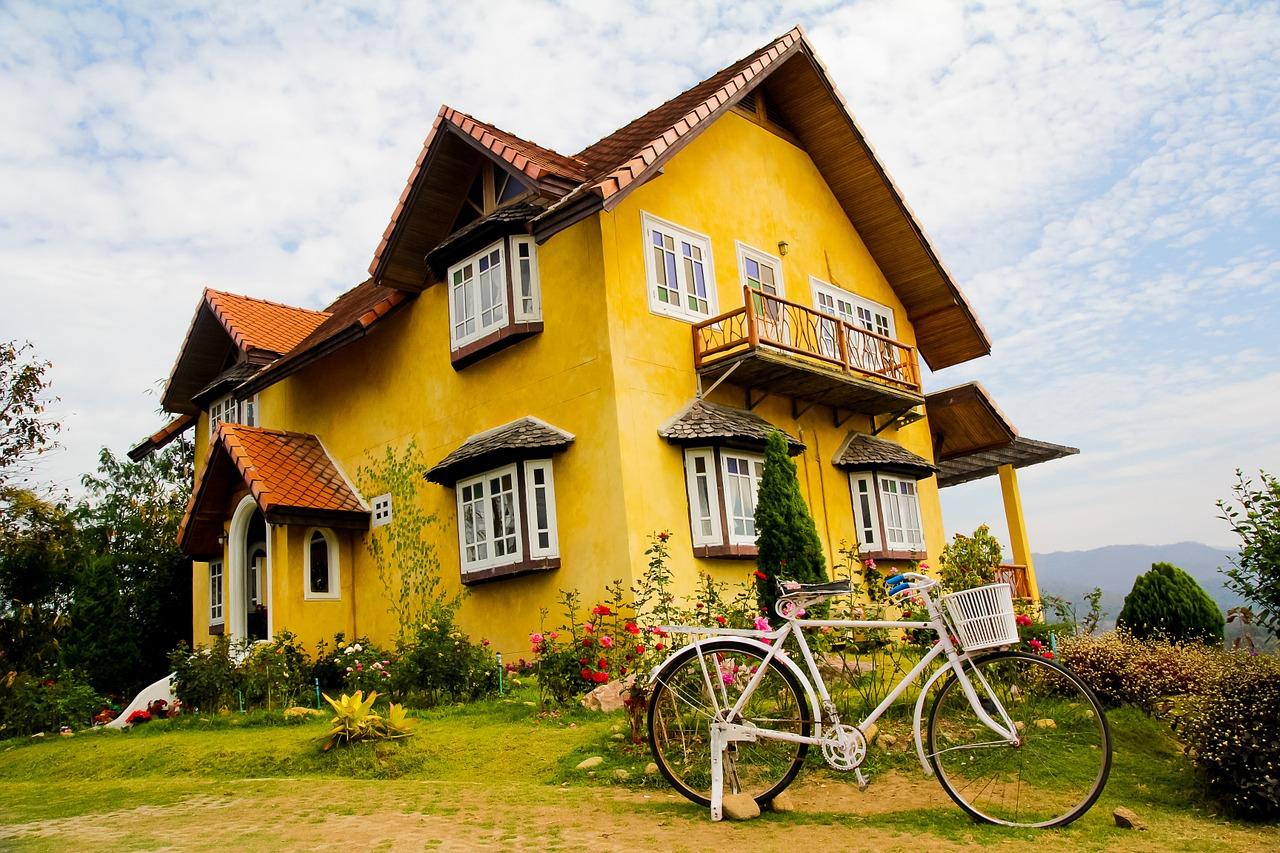Recently, one of my Cash Flow Freedom Builders told me that he is considering borrowing $40,000 against the equity in his home to pay cash for a single family rental house. This proposition opens the door to a meaningful discussion which can shed some light on what is needed for you to get ahead financially with real estate. While you’ll need to join Cash Flow Freedom University to get the inside scoop on this transaction and others just like it, I hope that you find these general thoughts interesting and that you will post a comment on the subject.
So here’s the question: Should you use a HELOC to buy rental properties? And how should you best use it?
Using Leverage in Real Estate Investment
Now, one of the greatest keys to unlocking the power of real estate investment vehicle is leverage, a topic I explore in great detail in my teleseminars. Proper use of leverage has the potential of amplifying the results we can achieve in a dramatic fashion. With this in mind, let us pencil two scenarios for utilization of the $40,000 of available equity.
Real Estate Investment Scenario A: Single Family Home
If I were in the Cincinnati, OH, where this student lives, for $40,000 I could certainly buy a single family property which would rent for $700 per month. After deducting about $150 per month for property taxes and $60 per month for fire insurance, and deducting 20% for vacancy and management expenses, a property like this will generate monthly net operating income (NOI) of roughly $350. Further, I would have to assume a debt service payment for the forty thousand of cash that I borrow against the equity in my home, and if I utilize a line of credit whereby the minimum payment is based on a simple interest rate of prime plus 1, today I’d be looking at a payment of a bit less then $170 per month (I’ll use $170 to keep the math simple). Once this expense is subtracted from the NOI, the house will be left with cash flow of about $180 per month.
The above scenario may be a reasonably good way to go. It is fully financed, meaning that it requires none of my own cash, and yet it makes positive cash-flow! Nonetheless, I think I can do better. Let’s pencil another scenario.
Real Estate Investment Scenario B: Multifamily Home
Let’s say that instead of utilizing the equity to buy a house outright, I use the $40,000 to make a down payment on a more expensive four-unit apartment building. Each apartment in a building like this will rent for $500 per month, giving me gross revenue of $2,000. After deducting property taxes of about $250 per month and fire insurance of $100 per month, as well as holding back 20% for vacancy and management expenses, I would be left with NOI of $1,250 per month. And I am sure that in Cincinnati, Oh I can find such a building for no more than $110,000 (In fact, another of my Cash Flow Freedom University is considering several of them as I write this).
In today’s world of conventional lending, if I owned fewer than four buildings I would be able to secure a conforming thirty-year mortgage with a 25% down payment. Financing this transaction will require me to borrow $27,500 against the equity (25% of $110,000), as well as borrow a conventional 30-year mortgage for the remaining $82,500. At a rate that is prime plus one, the debt service coverage for the down-payment will be about $115, while a 30-year amortized note for $82,500 at today’s rate 3.875% will set me back about $388. After deducting both expenses from the NOI, the building is still left with about $747 of monthly cash flow.
How to Best Use Your HELOC to Invest in Real Estate
So, how do these two proposed transactions stack up against each other? In my opinion, while both of these transactions clearly work, and both happen to be fully financed with OPM, the multi-unit is a better choice based on numerous metrics. While you will need to join the Cash Flow Freedom Builders in order to learn the specifics, following are a few obvious conclusions.
First of all, while $170 of monthly cash flow from the single family transaction is good, the $747 from the multi-unit really changes my financial situation in a substantive way. The higher cash-flow is made possible due to leveraging. Secondly, while I will need to assume more debt in order to finance the multi-plex, it is actually a safer transaction for two reasons:
i. Whenever a single-family rental dwelling is vacant, it loses money. But in a multi-plex building, I can afford to have 1 vacancy and still be making money. I can even deal with 2 vacancies for a reasonably short time. Think of it as not putting all of my eggs into one basket. In my mind, there is value in this safety margin.
ii. The HELOC (Home Equity Line Of Credit) that I utilized in both scenarios has a balloon payment requirement of no longer than ten years. This means that I have to have a plan of paying it off within that time-frame. In a single-family house transaction, my options are limited to refinance or liquidation, since the cash-flow does not support paying-off $40,000 organically. However, in the current market both of these options can present significant difficulties. On the other hand, in addition to those two options, in the four-plex deal I have the option of using the $747 of monthly cash-flow to pay-off the $28,000 which I borrowed to make the down-payment organically. Doing so will take four to five years, and once the loan is paid-off my cash-flow will jump-up to over $860 per month. The ability to do this creates my safety margin in the deal. So you see, while most people would automatically assume that borrowing larger sums of money and owning more units necessitates larger risk, the above implies otherwise!
Using a HELOC as a Creative Finance Option
The above discussion barely scratches the tip of the iceberg that is creative finance, but I hope to have given you valuable perspective. Let me ask you: how many four-plexes each throwing off $747 per month will it take for you to quit your job? Please join Cash Flow Freedom University to learn more about finance, evaluation, and strategies relative to acquisition of investment real estate.
Please check out my website at: www.JustAskBenWhy.com for more about how you can achieve the personal financial freedom you’re looking for!


12 Comments